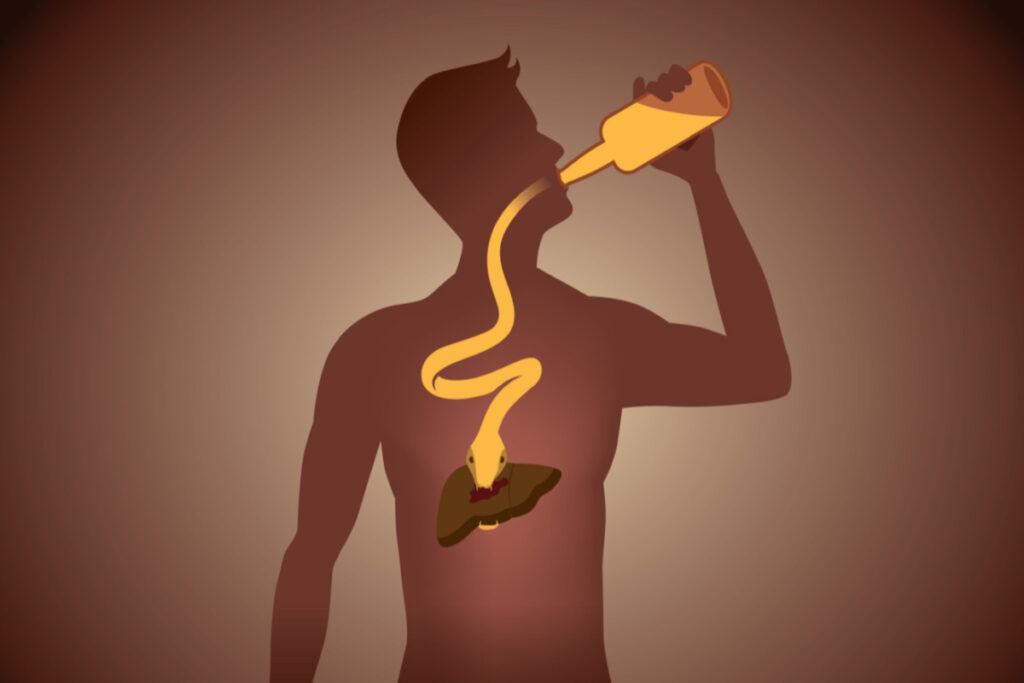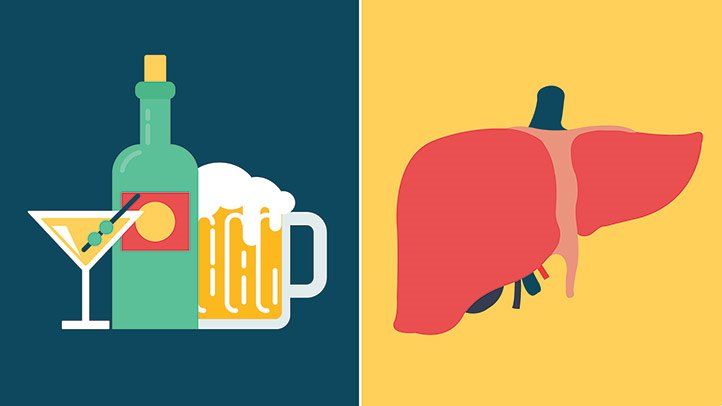Alcohol consumption is a prevalent aspect of social gatherings and relaxation for many individuals. However, excessive and prolonged alcohol intake can lead to severe health issues, including liver damage. The liver plays a crucial role in detoxifying the body, but it is particularly vulnerable to the harmful effects of alcohol. Recognizing the early warning signs of liver damage is essential to take prompt action and prevent further complications.
How do you know if your liver is hurting you?
- Changes in Urine Color: Dark urine, particularly if it resembles the color of tea or cola, could indicate liver damage. The liver’s inability to eliminate bilirubin may cause this change in urine color.

How can you treat liver damage caused by alcohol?
- Alcohol Abstinence: The most crucial step in treating alcohol-related liver damage is to stop drinking alcohol completely. This allows the liver to begin the healing process and prevent further damage.
- Medical Supervision: If an individual has developed alcohol dependence, medical supervision may be necessary to manage alcohol withdrawal safely. Withdrawal symptoms can be severe and, in some cases, life-threatening, so a structured detoxification program with medical support is recommended.
- Nutritional Support: A balanced diet is essential for supporting liver function. Nutritional counseling can help individuals with liver damage make appropriate dietary choices and maintain proper nutrition.
- Medications: In certain cases, healthcare providers may prescribe medications to manage specific symptoms or complications related to liver damage. For example, diuretics may be prescribed to manage fluid retention, and vitamin supplements may be given to address nutritional deficiencies.
- Treatment of Underlying Conditions: If alcohol-induced liver damage has led to complications like liver cirrhosis or hepatitis, additional treatments may be required to manage these conditions effectively.
More ways to deal with liver damage
- Regular Monitoring: Close monitoring of liver function through blood tests is essential to assess the progress of treatment and identify any potential complications.
- Lifestyle Changes: Adopting a healthy lifestyle can significantly support liver health. This includes regular exercise, maintaining a healthy weight, and avoiding the consumption of substances harmful to the liver, such as certain medications or recreational drugs.
- Support Groups and Counseling: Joining support groups or attending counseling sessions can help individuals cope with the challenges of recovery and provide a sense of community.
- Liver Transplant: In severe cases of alcohol-induced liver damage, where the liver function is severely compromised, and other treatment options have been exhausted, a liver transplant may be considered.

Conclusion
If you suspect that you or someone you know may be experiencing early signs of liver damage due to alcohol consumption, it is crucial to seek medical attention promptly. Making lifestyle changes, such as reducing alcohol intake and adopting a healthy diet, can positively impact liver health. Prioritizing your health and well-being is the first step towards a healthier liver and a happier life.
It is important to note that the liver has a remarkable ability to heal and regenerate, particularly if alcohol consumption is stopped early in the progression of liver damage. However, if liver cirrhosis or other advanced complications have developed, complete reversal may not be possible, but further damage can be halted, and quality of life can be improved with proper treatment and lifestyle changes.
Individuals with alcohol-induced liver damage should seek medical advice promptly and work closely with healthcare professionals to develop a personalized treatment plan. Combining medical support, lifestyle changes, and a commitment to abstinence can increase the chances of successful liver recovery and overall well-being.














